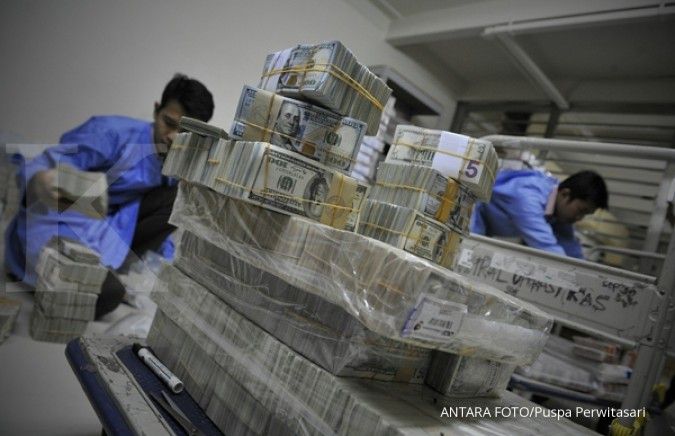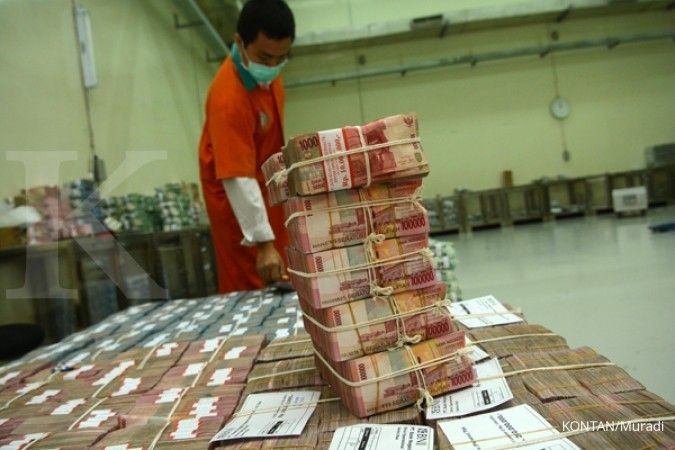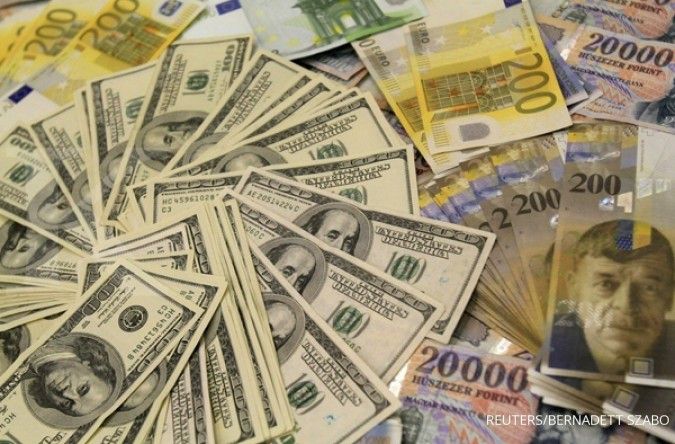JAKARTA. Indonesia’s foreign exchange (forex, or FX) reserves rose in December despite large capital outflows and the central bank’s intervention to halt the decline in the rupiah against the US dollar during the month.
Bank Indonesia (BI) announced on Thursday that the country’s forex reserves had increased to US$111.9 billion by the end of December from $111.1 billion a month earlier.
BI senior deputy governor Mirza Adityaswara said the central bank had intervened to stabilize the rupiah, but it eventually absorbed the dollars through its two monetary instruments: forex swaps and dollar-term deposits.
Outstanding forex swaps — a monetary instrument where local banks place their dollars in BI at specific rates within a certain period of time — increased by $2.2 billion in a month to top $8.5 billion by the end of December, according to a calculation by state-run Mandiri Sekuritas.
“There was an excess dollar liquidity in the banking sector, which in turn was absorbed by BI,” Mirza explained in a text message. “For the time being, the excess dollar liquidity was placed by banks in BI [monetary instruments].”
Forex reserves normally deplete when a currency faces intense stress, such as during capital outflows or when dollar demand increases because of a sudden upsurge of imports and foreign debt repayments by the end of the year.
In those circumstances, the central bank normally digs into its reserves to supply dollars to the market so the sudden uptick in dollar demand does not cause a steep depreciation in the rupiah.
“If we look at the latest forex reserves figure, we may assume that the central bank actually performed a limited, well-calibrated intervention last month,” Standard Chartered economist Eric Sugandi said.
Bank Central Asia (BCA) economist David Sumual said that currency intervention in December might have been “easier” than in other months, as there was a relatively low volume of daily dollar transactions onshore as the market approached the holiday period.
In December, the currency plunged from 12,432 to 12,900 per dollar in two days, but within a week, it strengthened to 12,435.
The rupiah slightly gained to 12,674 per dollar on Thursday from 12,739 on Wednesday.
“Market players saw the rupiah rate of 12,900 as very cheap and undervalued, so many of them decided to sell their dollars,” said David, who also noted that the current rupiah rate was still undervalued at its current level, 12,731 per dollar, on Thursday in the Jakarta Interbank Spot Dollar Rate (JISDOR).
The fact that Indonesia has recorded an increase in reserves over the past few months suggested a BI preference to allow the rupiah to find levels consistent with broad market pressures, said Sacha Tihanyi, a senior currency strategist with Scotiabank in Hong Kong.
“Indonesia is pursuing a policy of adjustment in the rupiah that is more consistent with the reality of the external accounts,” he wrote in an email.
Despite seeing an increase, Indonesia’s reserves-to-imports ratio is still among the lowest in the region, which makes the country susceptible to any financial market shocks ahead of the US monetary-tightening policy likely to take place this year.
At $111.9 billion, BI’s forex reserves are sufficient to cover six and a half months of imports and debt payments, higher than the international safe standard of three months, but still low compared with eight months in Malaysia and India or 11 months in the Philippines. (Satria Sambijantoro)
FX reserves increase despite weak rupiah
January 09, 2015, 10.06 AM
/2014/06/06/1917013943p.jpg)
Asing Net Buy Jumbo Saat IHSG Menguat 0,50% ke 6.864, Cek Saham yang Banyak Dikoleksi
Source: The Jakarta Post
| Editor: Hendra Gunawan
Latest News
-
February 07, 2026, 04.59 PM
Indonesian Comedian Summoned by Police Over Netflix Show
-
February 07, 2026, 05.57 AM
GLOBAL MARKETS-Stocks, Bitcoin Rally, Regaining Some Lost Ground with Precious Metals
-
February 06, 2026, 07.58 AM
Indonesian Markets Face More Pressure after Moody's Cuts Outlook
-
February 05, 2026, 07.19 PM
Moody's Cuts Indonesia's Sovereign Rating Outlook to Negative
-
February 05, 2026, 02.43 PM
Indonesia Posts Fastest Economic Growth Rate in Three Years
-
February 04, 2026, 04.38 PM
Indonesia's Tax Revenues Jump in January, Finance Minister Says
-
February 04, 2026, 03.34 PM
AUD 1.6 Trillion Australian Pension Funds Ready to Pour into Indonesia
-
February 04, 2026, 02.13 PM
Indonesian Miners Halt Spot Coal Exports Over Proposal to Cut Output
-
February 04, 2026, 12.39 PM
Emerging Asia Stocks Waver as AI Selloff Bites, Seoul Hits Record High













